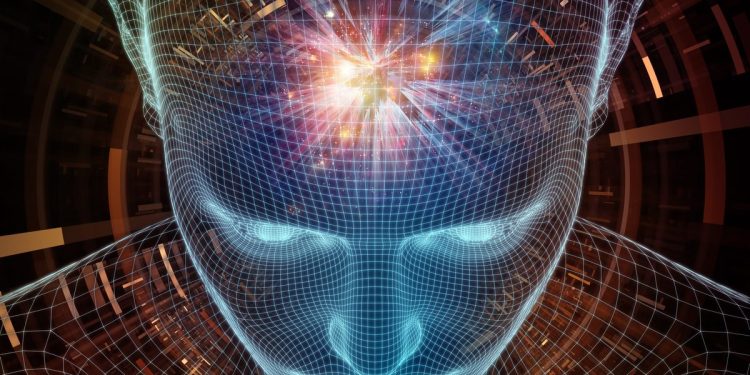Watch all the Transform 2020 sessions on-demand here.
In the future, personalized AI assistants will use knowledge of our behaviors to inform us of goings-on and do chores, and as we grow older, they’ll provide companionship and assistance when caregivers aren’t around. These assistants will not only chart our calendars and supply answers to questions, but will help administer medical treatments, assist us in making difficult decisions, and connect us with the people we care deeply about.
That’s the vision the Computing Community Consortium (CCC), an organization representing over 220 North American academic departments, industrial research labs, and professional societies, articulated in a draft of its 20-year roadmap for AI research in the U.S., which was published this month. Its organizers — who include University of Southern California director of knowledge technologies Yolanda Gil and Dr. Fei-Fei Li, a Stanford professor and formerly Google’s chief AI scientist — picture personal assistants that will fundamentally transform human lives around the world for the better.
“[AI] will enable an elderly population to live longer independently, AI health coaches will provide advice for lifestyle choices, [and] customized AI tutors will broaden education opportunities,” according to the report. “[A]nd AI scientific assistants will dramatically accelerate the pace of discovery.”
Eric Schmidt, former executive chairman of Google and Alphabet, and Helen Greiner, cofounder of iRobot, are in full agreement. Both shared their visions in a press gathering last month during MIT’s celebration of its new College of Computing, which was created in part to advance AI education.
June 5th: The AI Audit in NYC
Join us next week in NYC to engage with top executive leaders, delving into strategies for auditing AI models to ensure fairness, optimal performance, and ethical compliance across diverse organizations. Secure your attendance for this exclusive invite-only event.
“[Y]ou’ll have an [AI] assistant, [and] this assistant will express his or herself in many different ways. [A]s a child, you’ll have a teddy bear, which will help you learn language and math and what have you, and as an adult, you’ll have some other kind of assistant which will help you plan your day,” Schmidt said. “And as an elderly person, you’ll have an assistant that will keep your company [and] help you with any problems that you’re having.”
Greiner expects that concurrently, as AI becomes capable of performing more tasks, its transcension from the virtual world (e.g., smart speakers and smartphones) to the physical (driverless cars and highly dexterous robots) will accelerate.
“It’s about getting the physical into it. Think of all the time people used to waste vacuuming their floors,” she said. “[But] we’re still doing all this stuff — washing the windows, putting the dishes away — that’s the same rote types of jobs. [What we need to] envision is computation with the physical: a house that takes care of you, an automobile that drives you, and personal transport that gets you where you want to go. So many aspects of [our] life are embedded in the physical, and we need to apply that computation to the physical. I think that’s where the greatest [advances will come] in the next decade.”
There’s no doubt about it: They’re lovely predictions. But if the industry doesn’t address the issues threatening to derail progress it’s made toward them, a far grimmer reality might emerge.
The third in a series of studies by the American Automobile Association (AAA) found that nearly three-quarters of consumers are wary of riding in self-driving cars, with most predicting it will take at least a decade for the technology to mature. And in a recent Edelman survey of the U.S. general public and tech executives, about the same percentage of both groups believe AI will lead to more isolation because “there will be less need for people to interact with others” and worry that it will lessen “creativity” and “freedom of thought.”
AI also stands to disproportionately benefit the highly skilled at the expense of the economically disenfranchised. The World Economic Forum, PricewaterhouseCoopers, Gartner, and the McKinsey Global Institute predict technologies like robotic process automation (RPA) could make redundant as many as 75 million jobs by 2025 and depress the percentage of “low digital skills” from 40 percent to 30 percent in the next 10 years.
In the face of these extraordinary challenges, then, what steps should be taken to ensure the AI in the future — the AI that Schmidt, Greiner, the CCC, and other optimists envision — benefits the whole of humanity?
Respondents to the Edelman study champion regulation and transparency — over 50 percent say policies to guide AI’s development should be imposed by a “public body,” and say that it’s incumbent upon tech companies to show how AI will improve both lives and economies. And according to Katie Rae, who leads MIT’s The Engine startup accelerator, education will play a foundational role in shaping the next two decades in computing and AI research.
For its part, the CCC suggests that national AI labs could help address a shortfall of resources required to create more advanced systems. Microsoft CTO Kevin Scott summed it up nicely in a recent interview: “You can’t just create a bunch of tech and have it be super disruptive and not have any involvement … you have to create value in this world, and it can’t just be shareholder value,” he told VentureBeat. “I believe if you give people tools, the overwhelming majority of the uses to which they will be put are positive, and so you want to encourage that and protect against the negative in a thoughtful way.”
For AI coverage, send news tips to Khari Johnson and Kyle Wiggers — and be sure to bookmark our AI Channel.
Thanks for reading,
Kyle Wiggers
AI Staff Writer
P.S. Please enjoy this video of Stanley Systems’ automated robotic valet system.


